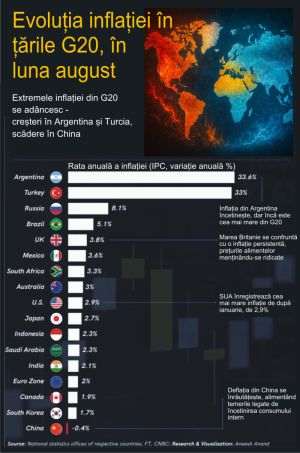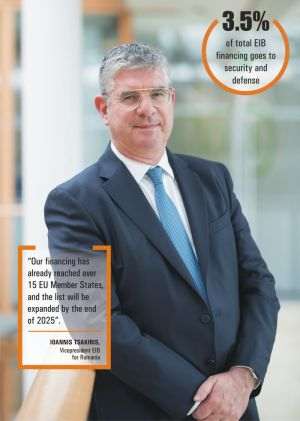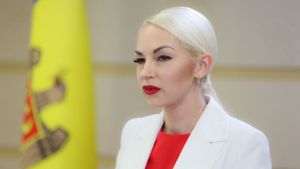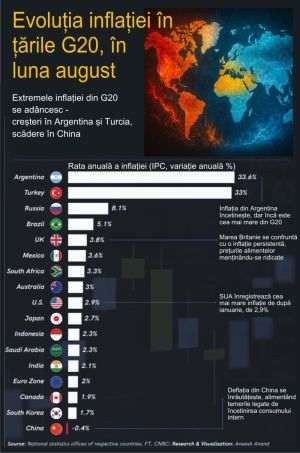The new school year brought us new fees and taxes in the first month of autumn, following the fiscal changes assumed in the Government Parliament to reduce the budget deficit. Threatened by the European Commission with the cut of allocations from EU funds, the Ciolacu government had to, after inheriting the draft law on new fees and taxes throughout the summer season, go with it to the Parliament, hoping that it would be approved at the Ecofin Council meeting the new budget deficit target that is more than one percent higher than the one agreed in March 2020 with Brussels officials. Following the amendment of the Fiscal Code, the Government claims that we will end the 2023 budget year with a deficit of 5.5% in contrast to the 4.4% assumed in 2020 for the current year. However, the experts of the International Monetary Fund who paid a working visit to Bucharest at the end of last month declared, through the voice of Jan Kees Martijn, the head of the IMF mission in Romania, that if 2023 will be an ordinary year, without other events, the budget deficit will be 6%.
The only good news in the macroeconomic field was the decision of the European Commission which approved and transferred to the Romanian state, at the end of last month, the 2.76 billion euros, representing the amount requested by the Government through the second payment request regarding the National Recovery and Resilience Plan .
The first week of last month was marked by the babble of the authorities in Bucharest regarding the Russian drones that fell near the town of Plauru in the Tulcean Ceatalchioi commune, a topic that was also debated at the Summit of the Three Seas Initiative that took place on September 6 in Bucharest and which finally led to the Ministry of National Defense erecting anti-aircraft shelters in the area and to the establishment of a new alert from the General Inspectorate for Emergency Situations for the residents of Galaţi and Tulcea counties regarding the falling of the remains from the sky of Russian drones shot down by Ukrainian anti-aircraft forces.
September was also the month in which the National Anticorruption Directorate showed us that it returned from a prolonged vacation, after ordering the detention of Dumitru Buzatu, the president of the Vaslui County Council, for taking a bribe of 1,250,000 lei. The court ordered the preventive arrest for Dumitru Buzatu, and the PSD immediately decided, at the request of the president Marcel Ciolacu, to exclude Buzatu from the ranks of the social democrats and to suspend from membership his ex-wife, senator Gabriela Creţu. Moreover, the son of the former PSD leader from Vaslui submitted his resignation from the position held within the Ciolacu government.
On September 11, the bell rang for almost 3 million preschoolers and students, according to the declarations of the Deca League, the Minister of National Education, the new school year being divided into five modules that will take place in 36 weeks, but with two less for students from final years of high school and one less for eighth grade graduates, children who are going to take the Baccalaureate or National Assessment exams. Unfortunately, according to the data presented by the Minister of Education, this school year too, students from 189 educational units will have to defecate in the toilet in the school yard.
On a sporting level, we recorded a 2-2 draw for the men's national team against Israel, as well as a 2-0 victory against Kosovo, results that keep us in the race for qualifying for the European Championship in 2024, which will take place in Germany. In addition to the good news above, we have a negative record: the men's national rugby team recorded a negative record in the matches played in September at the World Cup in France: 8 points scored and 242 points conceded. The heaviest defeat in the history of the nine Rugby World Cup appearances was against Scotland 0-84, but 0-76 against South Africa and 8-82 against Ireland are not inferior either, showing that rugby Romanian has fallen into a pit from which he does not know how to get up.
• Banks, taxed at 2% of turnover, multinationals taxed at 1% of turnover
The need for the fiscal changes that were debated in the last three months was discussed by the Prime Minister Marcel Ciolacu and the Minister of Public Finance, Marcel Boloş, even with the officials of the European Commission. On September 1, following the discussions held in Brussels with Ursula von der Leyen, the president of the European Commission, and with Charles Michel, the president of the European Council, Prime Minister Marcel Ciolacu declared: "Romania will implement the PNRR reforms without exception. Discussions will continue at the technical level, but we have established the principles. I announced that, as Prime Minister, I do not agree to increase the VAT rate above 19%, because it would lead to higher inflation and lower economic growth. We are not talking about introducing new taxes, we are not talking about austerity. We are considering reducing expenses from the budget system and raising the level of the fight against tax evasion. (...) The European Commission understood the context, namely the direct and indirect effects of the war in Ukraine, and Romania's effort to provide support to both Ukraine and the Republic of Moldova. There is flexibility to come up with a new plan in terms of reducing the budget deficit."
In order to reduce the budget deficit, the Prime Minister announced that the legislative package for which the Government would assume responsibility in Parliament would be structured on three levels: administrative reform, combating tax evasion and tax adjustments. Regarding tax evasion, the head of the Government declared that it reached 10% of the Gross Domestic Product, i.e. 160 billion lei, of which 20 billion lei represent only VAT evasion. Marcel Ciolacu was also dissatisfied with the tax paid by micro-enterprises which, according to the prime minister, have a total annual turnover of over 270 billion euros, remain with a direct profit of 15 billion euros, on which they pay a tax of only 1% after they benefited from tax deductions of 20%.
However, the package of fiscal measures discussed in first reading by the Government in the meeting on September 20, approved on September 25 and assumed on September 26 in Parliament also provided for the introduction of new fiscal measures despite the statements made by Prime Minister Marcel Ciolacu on September 1 from Brussels.
According to the draft normative act adopted in Parliament, the taxation of banks is changed so that they will pay a tax of 2% on turnover in 2024 and 2025, double the initial provision of 1%. At the same time, large companies, with turnovers exceeding 50 million euros, will have to pay a tax of 1% on turnover, if the tax paid on profit, accumulated from the beginning of the fiscal year/fiscal year and modified until the end quarter/calculation year, is lower than the minimum turnover tax.
• New taxation for micro-enterprises
Moreover, the normative act also modifies the taxation of micro-enterprises, the respective economic agents being forced to pay, from January 1, 2024, the following taxes on profit: 1%, for micro-enterprises with revenues that do not exceed 60,000 euros; 3%, for micro-enterprises that achieve revenues over 60,000 euros or carry out certain activities, main or secondary, corresponding to specific CAEN codes.
Regarding authorized natural persons who have income from independent activities, the normative act provides a new ceiling for the payment of CASS, of 10% on net income, if they have less than 60 minimum wages. If they have more, then it will be capped at 60.
The government has decided to limit the application of the tax relief granted to employees in the IT&C sector until December 31, 2028 inclusive, as well as the tax relief granted to the construction, agricultural and food industry sectors, by introducing a ceiling up to which the exemption from paying income tax is granted, respectively up to the level of 10,000 lei inclusive. Moreover, employees in the respective sectors of activity will also pay CASS contributions.
As far as labor taxation is concerned, the law assumed in the Government Parliament establishes the 10% taxation - for CASS - of meal vouchers and holiday vouchers granted to employees. Moreover, in order to limit budget expenses, the Executive has regulated the granting of vacation vouchers and meal vouchers only for employees in the budget sector whose salary income is less than 14,000 lei gross, even if it has increased the amount of vacation vouchers from 1,450 lei to 1,600 lei
The normative act also provides for an increase in VAT for some goods and services. Thus, VAT increases from 5% to 9% for the supply of social housing, the supply of high-quality food, the supply and installation of photovoltaic panels, solar thermal panels, heat pumps and other high-efficiency heating systems, as well as for the delivery of homes that have a useful surface of a maximum of 120 sqm, exclusive of household annexes, the value of which, including the land on which they are built, does not exceed the amount of 600,000 lei, exclusive of value added tax, purchased by natural persons. Fitness gym owners will pay 19% VAT, as will entrepreneurs who organize clubs, amusement parks, recreational parks and sporting events. VAT of 19% will be paid, according to the new normative act, by merchants who deliver alcohol-free beer and foods with added sugar, whose total sugar content is at least 10g/100g product. The tax changes also include increased excise duties on sugary drinks, tobacco and alcoholic beverages.
The new fiscal rules contain in and a special tax for houses/apartments and expensive cars, of 0.3%, which will be applied to people who own buildings with a taxable building value of over 2.5 million lei and to individuals and legal entities that own cars registered/registered in Romania whose individual purchase value exceeds 375,000 lei.
The normative act was challenged by the business environment, which requested predictability in the fiscal field, and the parliamentary opposition - in the absence of the number of signatures required to submit a motion of censure - attacked the fiscal changes imposed by the Government at the Constitutional Court, especially since they they had a negative opinion from the Economic and Social Council, but also a favorable opinion with a lot of observations from the Ministry of Justice, whose specialists say that many provisions are unconstitutional and have substantial defects.
The desire of the business environment regarding the predictability of the fiscal framework was shattered, previously, on September 20, by the Government which approved the emergency ordinance amending Article 4, para. (4), from Law no. 227/2015 on the Fiscal Code, an amendment that allows it to immediately introduce new taxes and fees if the budget deficit target assumed before the European Commission risks being exceeded.
• The current account deficit of the balance of payments, lower in the first seven months by 4 billion euros compared to 2022
In all this fiscal context, the Minister of Finance, Marcel Boloş, announced on September 28 that our country received the 2.76 billion euros requested from the European Commission through the second payment request from the PNRR and that the third will be submitted during October payment request, for the amount of 3.1 billion euros.
Good news also came from the National Bank of Romania, which announced on September 13 that between January and July 2023 the current account of the balance of payments recorded a deficit of almost 11.9 billion euros, compared to 15.2 billion euros in period January - July 2022. In its structure, the balance of goods recorded a smaller deficit by 2.36 billion euros, the balance of services recorded a larger surplus by 1.66 billion, the balance of primary incomes recorded a larger deficit by 637 million euros, and the secondary income balance recorded a smaller surplus of 64 million euros.
The central bank also announced that foreign direct investments totaled 4.25 billion euros (compared to 5.99 billion euros in the period January - July 2022), but also that in the period January - July 2023, the total external debt increased by 14.2 billion euros. In the structure, the long-term external debt amounted to 115.2 billion euros on July 31, 2023 (72.5% of the total external debt), increasing by 17.9% compared to December 31, 2022, while the external long-term debt short recorded at the end of July the level of 43.6 billion euros (27.5% of the total external debt), down 6.9% compared to the end of last year.
The BNR also noted, at the end of last month, that foreign exchange reserves were at the level of 59.2 billion euros and that the gold reserve level remained at 103.6 tons, worth 5.88 billion euros. The central bank also indicated that during September it recorded inflows of almost 7.33 billion euros, representing the change in the minimum reserves in foreign currency constituted by credit institutions at the BNR, the replenishment of the accounts of the Ministry of Finance (including the amounts resulting from the issuance of some Eurobonds of the Ministry of Finance in total nominal value of 3.25 billion euros as well as an installment of the loan granted by the European Commission in the National Recovery and Resilience Plan -PNRR- in the amount of approximately 2.76 billion euros), replenishment of the European Commission account, etc. Regarding the outflow of funds, the BNR indicated that they amount to 1.99 billion euros, resulting from the change in the minimum reserves in foreign currency established by the credit institutions at the BNR, from installment and interest payments on the account of the public debt denominated in foreign currency and others.
• Russian drones "hovered" over the Summit of the Three Seas Initiative
What should have been a success, on September 6, of President Klaus Iohannis - Romania being the first country to organize two editions of the Three Seas Initiative Summit (I3M) - will remain recorded in history as the moment when the head of state was forced to contradict everything he said in the days before the summit, when he denied the information coming from Kiev about a Russian Shahed drone that fell on Romanian territory.
Klaus Iohannis admitted that the Russian drone fell in our country, and later he would show that other drones also fell on Romanian territory, after being hit by Ukrainian air defense. President Iohannis also mentioned that Russia's drone bombing of Ukrainian ports from the Danube makes it difficult to export Ukrainian grain and that our country, through which 25 million tons of grain from Ukraine were transited until last month, will have to find new transport possibilities and new transport routes on the road, railway, river infrastructure and through the territorial waters of Romania in the Black Sea.
Following the incidents with the Russian drones that fell on Romanian territory, in Plauru - Tulcean Ceatalchioi commune, the National Committee for Emergency Situations chaired by Prime Minister Marcel Ciolacu approved a decision by which it instituted a set of measures on the border with Ukraine, immediately vicinity of the conflict zone. According to CNSU decision no. September 31/7, 2023, MApN is empowered to assess and establish the areas on the territory of Romania, adjacent to the Reni and Ismail conflict areas, where specific measures to protect the population are instituted. In the respective areas, the county committees for emergency situations have measures in place to inform the population, identify the spaces that can be used for shelter and ensure permanence at the local public authorities' headquarters, as well as establish the places for the activation of the alarm means.
Also, MApN is in charge of building protective spaces for the population in the localities of Plauru and Ceatalchioi, as well as at the level of other localities with a small number of inhabitants in the respective area. In the respective areas, the General Inspectorate for Emergency Situations will issue warning and alarm messages to the population through the Ro-Alert system, and where there is no GSM coverage, it will deploy crews that ensure the warning/alarming of the population, based on the data sent by the dispatchers through the systems of radio communications, using mobile means of warning or communication.
Due to the above events, the joint statement of the heads of state present at the I3M Summit went almost unnoticed, the statement establishing that Greece becomes the thirteenth member state of the Three Seas Initiative and that the Republic of Moldova and Ukraine become states associated.
• The Government increased the minimum wage
In the meeting of September 28, the Government decided that from October 1, 2023, the minimum gross salary per country guaranteed to be paid will increase from 3,000 lei to 3,300 lei per month. It is about a 10% increase which, according to the government decision, will benefit almost 1.87 million employees. The measure will have an impact on several sectors of activity, however, especially in the areas of transport, trade and SMEs. The representatives of the business environment did not oppose the increase of the minimum wage per economy, but requested the establishment of a predictable mechanism regarding the establishment of this wage and differentiated minimum wages for each economic sector.
• Investalim, a new program to support the agri-food industry
On September 8, the Government approved the implementation procedure of the Investalim National Food Industry Development and Support Program for the 2023-2026 period. The procedure for granting state aid, the general conditions regarding the payment of the aid, respectively the quantitative and qualitative indicators of the investment, the scoring criteria for the applicant companies, as well as the rules regarding the maintenance of the financed investment are detailed in the procedure. The maximum aid intensities for both large enterprises and small and medium-sized enterprises cannot exceed 70% of the eligible costs of the investment project. The maximum budget of the Investalim Program for the period 2023 - 2026 is approximately 600 million euros (590 million euros), respectively the equivalent of approximately 148 million euros annually (147.5 million euros). Through this program, regional state aid will be granted to support investments in the acquisition of assets for the establishment of new units, the expansion of the capacity of an existing unit, the diversification of production through the manufacture of new products. Through this scheme, processing units will be built in the following areas: meat processing and preservation, fish industry, potato industry, fruit and vegetable juices, fruit and vegetable processing and preservation, oil and fat manufacturing, dairy and cheese manufacturing, manufacture of milling products, manufacture of bread, manufacture of sugar.
• Energy cards, also valid in the 2023-2024 winter season
On September 20, the Ciolacu Cabinet approved an emergency ordinance that continues to ensure the funds for the payment of the support given to the vulnerable population for the compensation of the energy price.
Thus, the necessary amounts will be provided from European funds, both through the Operational Program "Human Capital", the Regional Operational Program and the Operational Program "Administrative capacity", as it has been until now, as well as through the 2014-2020 Large Infrastructure Operational Program as well as the 2014-2020 Competitiveness Operational Program, within the limits of the savings that are identified at the level of these programs. The budget of the temporary support measure for compensating energy prices for vulnerable platform categories was set at 4 billion lei. The energy cards in circulation, i.e. more than 1.6 million, were supplied with a new installment worth 700 lei/for each beneficiary. The new cards, which are in the process of being distributed, will be loaded with the same amount of money after the Romanian Post will announce that they reach the approximately 400,000 beneficiaries.
















































